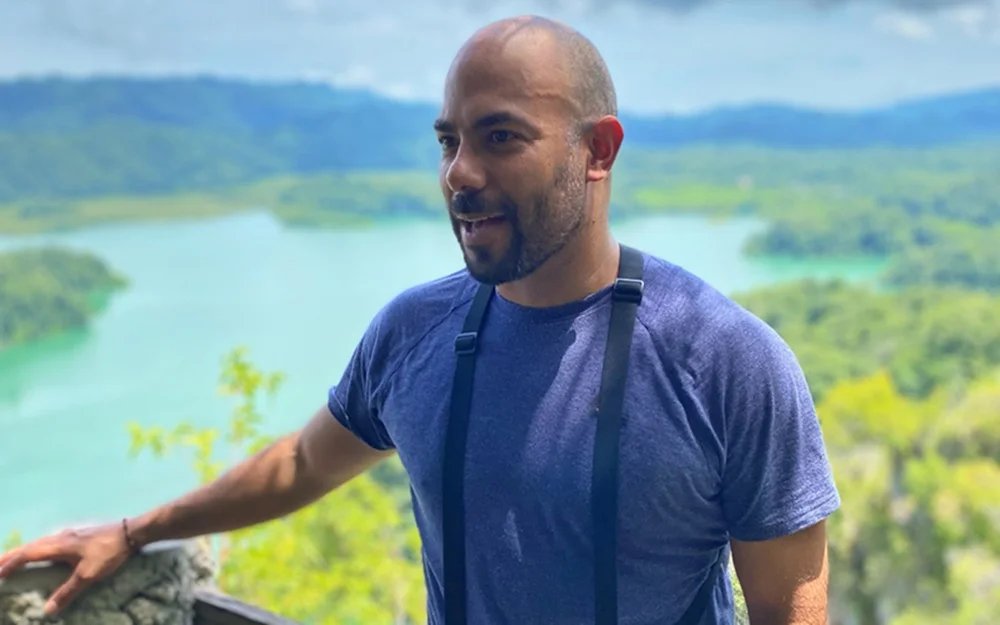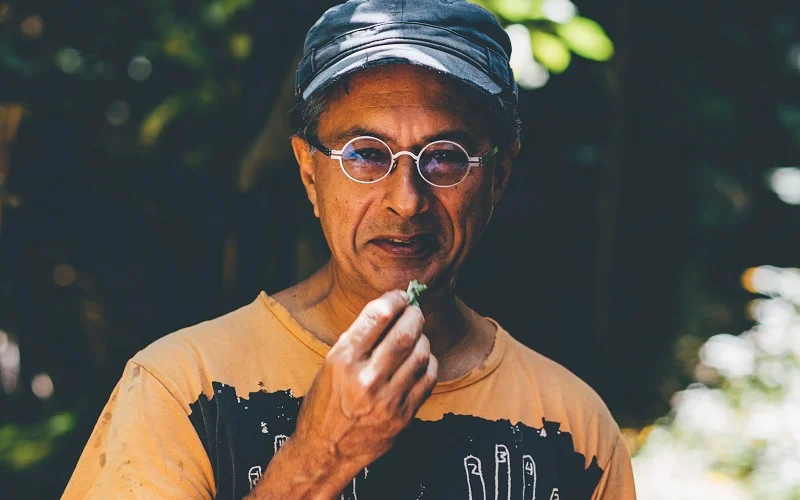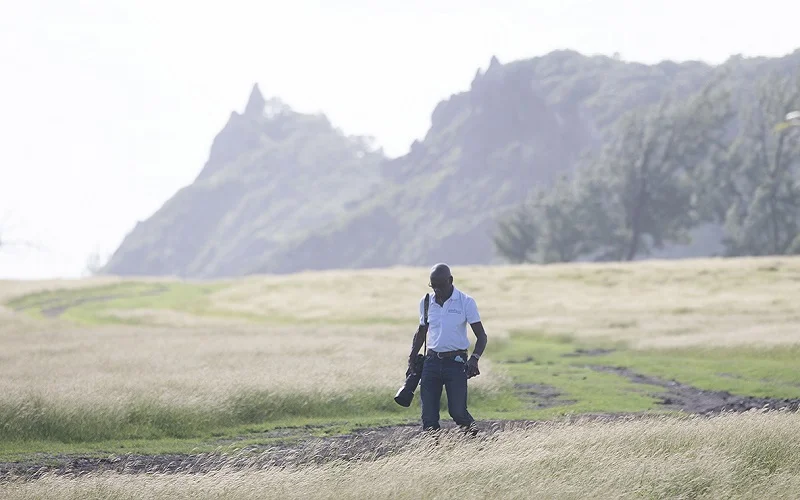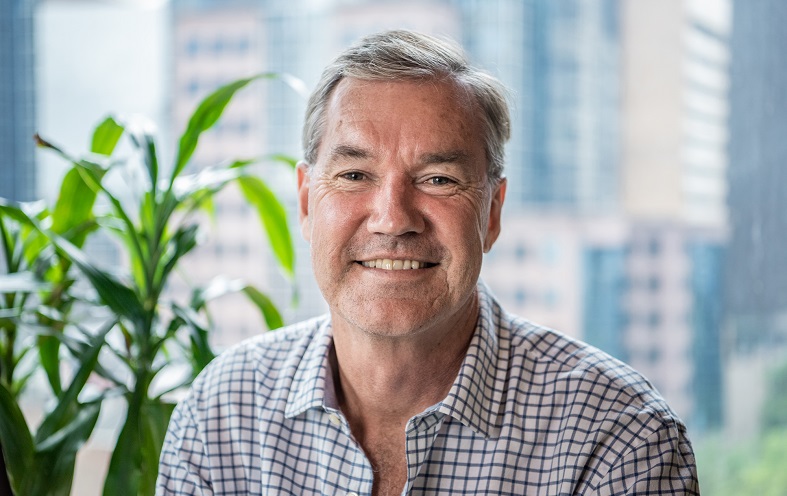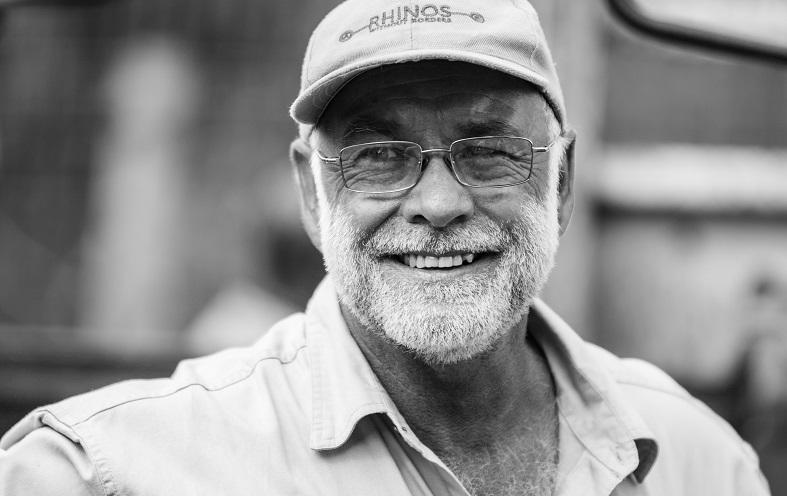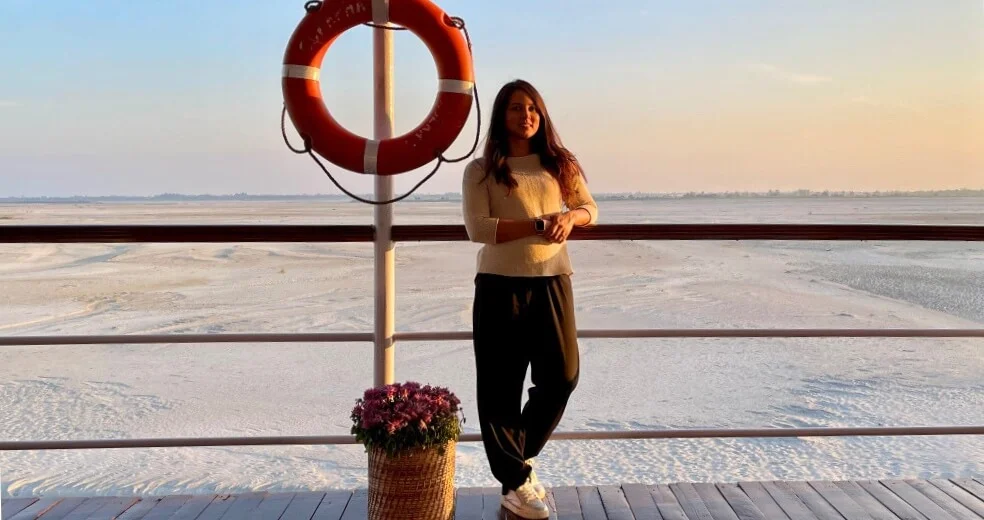 Meet Antara Phookan, a dedicated advocate for sustainable development in cultural and natural heritage tourism. Antara’s work focuses on promoting conservation in protected natural areas of Assam in northeast India and enhancing the well-being of local communities in Assam and Bengal. Her efforts have made significant strides in highlighting the unique biodiversity and cultural richness of these regions, while also driving initiatives that benefit both the environment and local inhabitants.
Meet Antara Phookan, a dedicated advocate for sustainable development in cultural and natural heritage tourism. Antara’s work focuses on promoting conservation in protected natural areas of Assam in northeast India and enhancing the well-being of local communities in Assam and Bengal. Her efforts have made significant strides in highlighting the unique biodiversity and cultural richness of these regions, while also driving initiatives that benefit both the environment and local inhabitants.
Join us as we explore Antara’s professional journey, the challenges she has faced, and the impactful experiences she has encountered along the way.
Antara, can you share some of the most rewarding experiences you’ve had in promoting sustainable cultural and natural heritage tourism in Assam and Bengal?
I take pride in upholding my family’s legacy as the second generation with even greater passion and purpose. This journey highlights our special corner of the world through a conscious collection of unique experiences in east and northeast India. Our pioneering Himalayan river cruising journeys on boutique expedition ships and wooden houseboats and our regenerative safari eco-lodges in two UNESCO world heritage sites in Assam showcase this. The Diphlu River Lodge has catered to discerning wildlife travelers since 2009 in Kaziranga National Park.
We operated the Bansbari Lodge in Manas National Park for 15 years but had to discontinue during COVID. We plan to replace it with a new safari eco-lodge in late 2026 in Manas National Park. These wildlife eco-lodges highlight the conservation requirements for these UNESCO sites.
Every day, I experience something truly meaningful by contributing to an industry vital for my region. Witnessing the transformational power of travel fuels my passion and dedication. Furthermore, seeing my team motivated to do more within their families and communities is incredibly rewarding.
What have been some of your main challenges to overcome as a sustainability-conscious tour operator in India?
One of the primary challenges was educating the travel industry about the natural and cultural heritage significance of Northeast India. Many are unaware of their country’s diversity, especially since northeast India opened up post-insurgency in the 1980s. It was difficult to highlight our region’s appeal as it is off the beaten tourist path. Neither domestic travelers nor the local DMC network understood the appeal of our eco-lodges or the significance of the Brahmaputra River.
Things changed when we started cruising the Ganges in 2007. Post-COVID, northeast India has gained recognition for its pristine biodiversity and self-sustainable indigenous communities.
India, a complex and rapidly developing country, presents ongoing challenges in getting stakeholders to work towards a bigger impact. Despite being a small entity, we hope our efforts create a ripple effect amidst larger forces.
As a sustainable tourism impact maker, what are your main goals and strategies for fostering sustainable practices within the travel and tourism industry?
My goal is to inspire, motivate, and support my team of 300+ to continue improving and work closely with impactful change-makers. I strive to be a role model, demonstrating that implementing change is possible and successful. As an advocate for women’s empowerment, natural heritage conservation, and conscious design implementation, I use my position to empower others while embodying these principles daily.
We drive positive change through our self-funded foundation, supporting projects and communities in education, environment, and community development. On an industry level, we are involved with RARE India, CREST, and Regenerative Travel, collaborating with stakeholders to foster sustainability in the region and create a lasting positive impact.
Having served as Director of JTI Group & Assam Bengal Navigation, could you elaborate on the impact of these businesses and how they drive regenerative development in the region?
JTI Group, established in 1989, encompasses our products, social welfare verticals in natural and cultural heritage conservation, and bespoke travel services specializing in natural and cultural immersion and adventure travel in northeast India. Since the 1990s, JTI Group has spotlighted the natural preservation efforts of Northeast India globally.
Post-insurgency, responsible tourism was crucial. We collaborated with indigenous tribes to establish guesthouses and standard practices, empowering local guides to support community tourism. We supported worldwide research associations involved in biodiversity and indigenous cultures. In 2009, we revived Diphlu River Lodge, symbolizing regenerative tourism. Today, it is one of India’s top wildlife lodges, prioritizing local wildlife conservation, environmental stewardship, and community support.
Assam Bengal Navigation, established in 2003, pioneers river cruising on the Ganges and Brahmaputra rivers. Despite using fuel machines, we compensate by ensuring cultural and natural heritage conservation, avoiding single-use plastic, supporting local artisans, and fostering community development. Our self-funded foundation supports education, environment, and community pillars. We aim to create a significant impact, adopting regenerative principles in tourism for a sustainable future.
The field of sustainable tourism is constantly evolving. In your opinion, what are some emerging trends or innovations that could significantly impact regenerative and adventure travel in India?
I am optimistic about the younger generation taking action for change. Witnessing global crises, people are waking up to the need for change and connecting spiritually to themselves and the natural world. This awakening brings hope that more change-makers will create a positive impact.
In your experience, what does it take for a tourism entrepreneur to really make an impact in terms of sustainability?
One must genuinely care about making regenerative tourism their sole objective, as it is the only way forward in the travel and tourism industry. Grit and patience are essential, avoiding the easy way out in a capitalistic world. Most importantly, working towards being a conscious being makes it paramount to leave the earth better than you found it and spread kindness, as there is no better feeling.
Thank you, Antara.
Connect with Antara on LinkedIn or find out more about her ventures here. If you enjoyed our interview with Antara, please share it and spread the word about sustainable tourism and conservation in Assam and Bengal!
Antara has been featured here because she has been peer nominated for our community of sustainable tourism impact makers – counting over 400 trailblazers around the world (meet them here).

